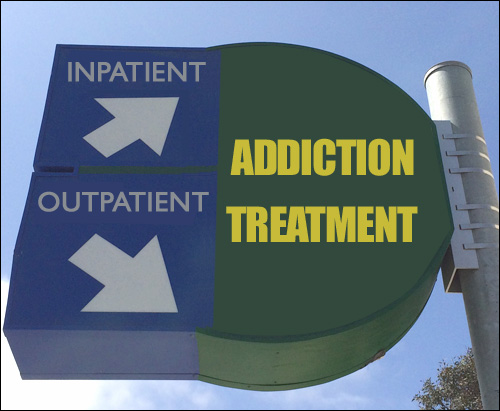When it comes to addiction recovery, there are plenty of options to choose from, and the choice between inpatient and outpatient treatment is one of the first decisions to make.
Each person is different and has a different set of challenges that can be more or less severe than the next person’s. The key is finding the most effective approach for an individual seeking help from issues of addiction.
The first step in determining the best course of treatment comes after a thorough assessment by a qualified addiction specialist.
Inpatient or Residential Treatment Programs are generally a minimum of 28 days but can easily last 90 days or more. Patients actually stay at the facility during this time. Perhaps one of the greatest benefits to inpatient care is the safe and secure environment. Being removed from the pressures and temptations of daily life can help break the cycle of addiction, and offer some perspective.
Reasons for Inpatient Treatment for Addiction
- Patients who must detox from drugs, such as prescription painkillers or other opioids, should receive treatment at a facility that medically monitors their progress through this difficult and often painful phase of recovery
- The immersive environment of inpatient care provides a daily routine, and patients can use this time for counseling, therapy and learning more about coping with addiction without added distractions
- Anyone with a dual-diagnosis, such as addiction combined with depression or anxiety, should seek treatment at an inpatient facility providing psychotherapeutic programs
- Individuals who haven’t had success with more conservative treatments might better be able to address their addiction in residential care
The most notable difference in outpatient treatment for drug and alcohol addiction is the absence of a totally secure environment. Individuals return home after daily therapy sessions.
A qualified treatment program will still offer an individualized strategy for their outpatient clients, as well as individual and family counseling where a person can work through any underlying issues. Patients work on skills that aid in recognizing and coping with triggers that set their disease in motion.
While staying sober might be difficult for some patients in this type of program, others find it useful, especially those with extremely supportive families.
Reasons Why Outpatient Treatment Might Be the Right Choice
- More suited and appropriate for individuals with moderate to mild symptoms of addiction
- No long absences from family or work responsibilities
- The immediate introduction to support communities, such as SMART Recovery, Twelve Step Facilitation Therapy or Alcoholics Anonymous
- Inpatient treatment has already been completed and outpatient services are needed for aftercare maintenance and relapse prevention
For anyone living with a substance addiction, the most important thing is to seek the most effective treatment possible for their unique needs and situation.
Only after a thorough evaluation can an informed decision be made as to whether outpatient or inpatient treatment is best. Consultations with addiction counselors, psychologists and family members are always a good idea while deciding which approach to take.
Related:
Smart Recovery in Southern California






